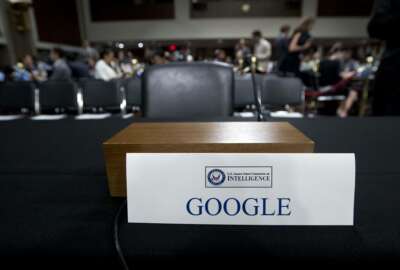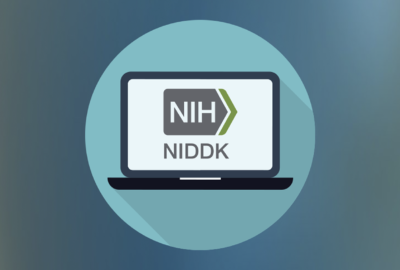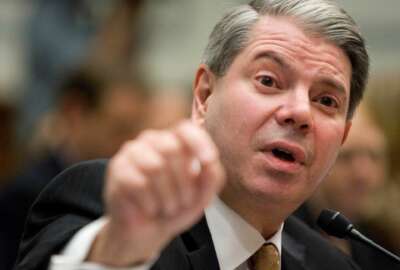Meet the new chief scientist at the government’s premier oversight agency
The Government Accountability Office, the chief oversight arm of Congress , has a new chief scientist. He joins the agency after having been chief scientist at...
The Government Accountability Office, the chief oversight arm of Congress , has a new chief scientist. He joins the agency after having been chief scientist at Noblis, a nonprofit research and consulting institute with many federal clients. For more, the Federal Drive with Tom Temin spoke with Dr. Sterling Thomas.
Interview Transcript:
Tom Temin Well, first of all, why the jump from the private, nonprofit sector into government in the congressional branch?
Sterling Thomas Yeah, it was a tough decision, actually. I’ve had a nice, long and very wonderful career at Noblis, doing many jobs and then finishing up as our chief scientist. The nice thing about working there was that I did have a lot of opportunities to do different types of science. I had oversight a lot of the research that they did. But the opportunity that was available at GAO was to take an even broader view of the science technology that’s done in the federal government, and really have much more of an opportunity to have a significant impact in the policy side, which I had done a little bit at Noblis but not near as much. And so the opportunity was hard to pass up of being able to go and have this broad overview and oversight to help Congress and all of the science across the government provides a policy guidance, my thoughts, and then potentially have an impact and where some of that work goes.
Tom Temin And the portfolio is quite broad because there is so many agencies that conduct science directly, but then there is billions and billions of dollars in scientific grants that are led by agencies. So you pretty you have kind of a big view of science in the United States.
Sterling Thomas It’s a lot. And actually it’s a little bit of what’s changed from my predecessor. So the previous chief scientist at GAO had interactions with a lot of the agency was really focused on the [Science, Technology Assessment, and Analytics (STAA)] part of it is where a lot of the scientists exist at GAO. That’s the part that provides kind of the the technical assessments that spotlights that you read a lot of the scientific guidance. But my role now is actually chief scientists across all of GAO, because I am responsible for not only supporting the scientists of STAA, but also all of the other components of GAO that do a lot of the audit work. Because just as you said, science technology is almost embedded in all of the way the government operates. There’s some component that’s important there that needs to be understood and often needs to be addressed in their audit work and oversight work. And so it’s a very broad. There’s a lot of things I can look at all the time. Some of the things I spent, some of the stuff I spend my time doing is just kind of evaluating what needs my attention, what doesn’t. And that’s something that I’m working on as I’m growing my role here.
Tom Temin Because there are other chief scientists in the executive branch. There’s kind of a community you’re joining.
Sterling Thomas Yeah, and I’ve been meeting with some of them in the executive branch in the strategy side at the White House with the Office of Science Technology Policy, have met with them already. And certainly in the agencies meeting with the chief scientists there, there are parts of the government that are doing lots of advanced research. So folks that like [Defense Advanced Research Projects Agency (DARPA)], [Intelligence Advanced Research Projects Activity (IARPA)] and [Advanced Research Projects Agency for Health (ARPA-H)]. And so it really is a community of folks that are trying to make sure that the government is moving in the right direction, that we’re being responsive to the Congress as well as the American people, and that both sides are our constituents.
Tom Temin Congress gets knocked a lot. But there is some pretty good scientific and engineering and economic chops among members of Congress. It’s not universal, but there is some expertise up there. And also in the staff, I would say.
Sterling Thomas Yes, absolutely. And that’s something that we’re trying to continue to augment and grow. And so I’m glad that you brought economics into it, because that’s something else that we’re bringing into this as well. So I’ve had a great opportunity to meet with both sides of the House and the Senate and continuing into the next several months of going up and meeting the rest of the staff there. There’s quite a bit of expertise, quite a bit of knowledge, and there’s a recognition that in addition to understanding the science technology, they’re making decisions about that there needs to be an economic consideration. In science, in the government ranges across the entire spectrum from fundamental science. A lot of the work that we do like the [National Institutes of Health (NIH)] and the [National Science Foundation (NSF)], but also going very much into the applied world of if we’re going to bring in this new technologies, new capability of the underlying economics work, how do they work so that we know that small business or larger businesses can adopt this technology, make it available to the American people and improve people’s lives? And so those types of economic and technology discussions are happening all the time, and there’s quite a bit of good knowledge on the Hill for that.
Tom Temin We’re speaking with Dr. Sterling Thomas. He is the newly appointed chief scientist at the Government Accountability Office. And tell us a little bit about yourself. We know you worked for Noblis us for a long time. What kind of scientist were you originally when you actually did the science directly?
Sterling Thomas Yeah, so that’s a great question. I’ve done lots of great things and I started my career actually doing cancer work. I was in academia, I worked at Virginia Commonwealth University, where I also did my Ph.D. and worked on the gene signaling networks associated with lung cancer and colon cancer and some of the other types of diseases in that realm, and really got an opportunity to understand deeply kind of genetic signaling, which is what a lot of my foundational work is, and a lot of that is mathematical modeling. And I did laboratory work as well. So I’ve been kind of both sides, the computer modeling and actually growing cells and all that stuff. That actually moved to Noblis pretty early in my career. And there I did really focused on infectious disease. A lot of it focused on national security issues, trying to make sure that we are developing the technologies to detect and treat people if some sort of pandemic happens, like what happened with COVID 19. And then developing the algorithms behind that and as well as some of the laboratory detection methods, a lot of work and gene sequencing, a lot of work in identifying different components of the disease of diseases and the viruses and how they move kind of the evolutionary drift types of stuff you learn about. And that was the fundamental work that I did. There’s actually quite a bit of other kind of tangential work. I did a lot of data science work. I actually still teach data science at George Mason University. They actually did some cyber work for Department of Homeland Security and developing algorithms for detecting cyber attacks. So my works kind of gone all over the place. But foundationally, I’m a biological scientist who study genetics.
Tom Temin So a lot of the work you have done is fairly modern. That is to say, you can’t write algorithms for detecting cybersecurity flaws with a slide rule anymore.
Sterling Thomas My father’s also a scientist. He has a slide rule. He shows it to me on soil that I’m actually sure how it works. All right.
Tom Temin Well, any Generation Z listening, look it up. Slide rule. That’s a good thing to have in your pocket along with your protector. Well, what are your goals for GAO science and technology assessment. That’s a kind of a special unit within GAO that’s alongside all of the regular directors that oversee different pieces of the government and different channels.
Sterling Thomas The goals at STAA, which is that science and technology director you’re talking about, is really to continue to push forward the quality of science coming out. They have excellent quality work. GAO, which is one thing everyone knows about GAO is the work that they do is you can’t challenge it. It’s very, very good. But I do want to accelerate the volume and the speed. It’s hard to keep up with science and technology. And we need to as an agency, because in the end our clients, Congress, have to make these decisions very quickly. Look at the recent work on artificial intelligence specifically focused around generative AI, that is a very fast moving technology and capability. And GAO has been able to kind of keep up on that. But I want to make sure that as our reports and strategy and technical documents that describe the technology come out are coming out in a much more timely manner. So the goal really is to accelerate that pace, to increase the volume of work that we’re doing so that we are hitting this, as you said earlier, this broad realm of all of the types of things that we are responsible for providing guidance to the Hill. And so the main goals are speed and volume and then maintaining the quality, really embedding our scientists into the scientific domain. You’re going to see much, many more geoscientists at scientific conferences, publishing in peer reviewed journals, talking about the work that we do so that they can maintain their connection to the industry.
Tom Temin And do you feel you have the resources to do that? Because you mentioned basically faster and better and the engineers will say, Great, just don’t ask us also cheaper.
Sterling Thomas Yeah, so the good thing about the GAO is that we provide a return. The leadership of GAO and talks about how much each dollar invested brings back. And so because of that, we do have a good budget to be able to continue this work. And we are growing our team and will continue to grow our team and we’ll continue to look for additional resources. But in the end, this really is an opportunity to develop this capability, make it as broad as it needs to be so that the Hill and the Congress has the guidance that they need to make these decisions as they’re writing policy. These things impact. The policy Congress writes impacts not just scientists. It impacts everybody, because in the end we want that technology. We want that capability to be available to our businesses, to our citizens, and all the people who depend on us.
Tom Temin And partly because of what happened during the COVID crisis and partly because of the fact that we live in an age of orthodoxies and certainties, whether they’re so or not, but people seem to cling to them as if it was a matter of life and death. And science has gotten caught up in that grinder. And people say, well, the science says this, or the science says that. A real scientist says, well, this is the best guess we have. But almost everything ever proven in science has been unproven later on, and that’s the scientific process. Do you worry about that idea of citing science says this and therefore this orthodoxy is hereby imposed on the earth?
Sterling Thomas Yeah. So we could spend a lot of time talk about science education on that. But yeah, the scientific method comes down to kind of a fundamental statement of you’re right until you’re wrong. And that’s the reality of it, it’s continuing to move forward. It’s a hard thing to understand if you didn’t kind of be trained in that realm of it’s okay to it. It’s very important that scientists come out in the moment and say, this is what we know and this is what we think is right. And then some other scientists a month or a year later says, actually, no, they were wrong. This is the way it is. In the end, they weren’t actually wrong at the time. They had the best knowledge, and then we move forward. That’s the progress and that’s the reality. It’s hard for people sometimes to grasp, but it’s even hard sometimes for agencies to grasp because you look at an agency like GAO, their responsibility historically has been audits. And we do much more in science technology now, which is excellent.
Sterling Thomas With an audit you’re looking retrospectively, you’re saying, ok, this is what happened and this is absolutely truth of what happened, which is the fundamental requirement of GAO is a little bit of a culture change that happened before I got there. But that is really embedded now in GAO, the scientific technology culture of looking forward, of saying this is the technology. What we understand today about Generative AI is going to be different than the way generative AI looks in six months and 12 months. It just is. That’s the way the technology progresses. It doesn’t mean that what we’re saying today is wrong. It just means that what we’re saying today is right today and then it’s going to change and evolve. I know we are know kind of tangled up in that during COVID because people are looking for absolutes. It’s not just the challenge of science. It’s really a challenge of health sciences. When someone’s sick and someone has a major life is impacted by science like COVID 19 was, we think of many other diseases that change people’s lives. You want absolutes. You want to say this is what’s happening because that’s the way our brains need it and it makes us feel better. And unfortunately, that’s just not the way science works. And it’s something that that you do need to train. We need to train our populists to understand and have a better understanding of science. That’s, again, another discussion. But I think it was it’s always inevitable that scientists kind of get wrapped up in that of, Oh, you were wrong a year ago. No, I wasn’t wrong. It was just at the time that was the best knowledge we have. And that gets to the way we support Congress is that they’re writing policies that hopefully last for a long time where they implement laws that stick around for decades. So when we sit down and think about the policy of science, we have to develop policy that also allows for that continued expansion of knowledge, the continued growth of insight of how technology works so that it doesn’t just work today, it works ten years from now.
Copyright © 2025 Federal News Network. All rights reserved. This website is not intended for users located within the European Economic Area.
Tom Temin is host of the Federal Drive and has been providing insight on federal technology and management issues for more than 30 years.
Follow @tteminWFED






